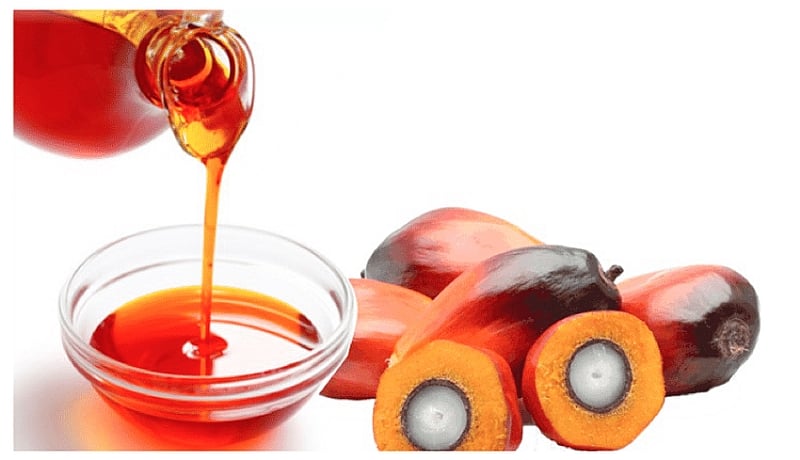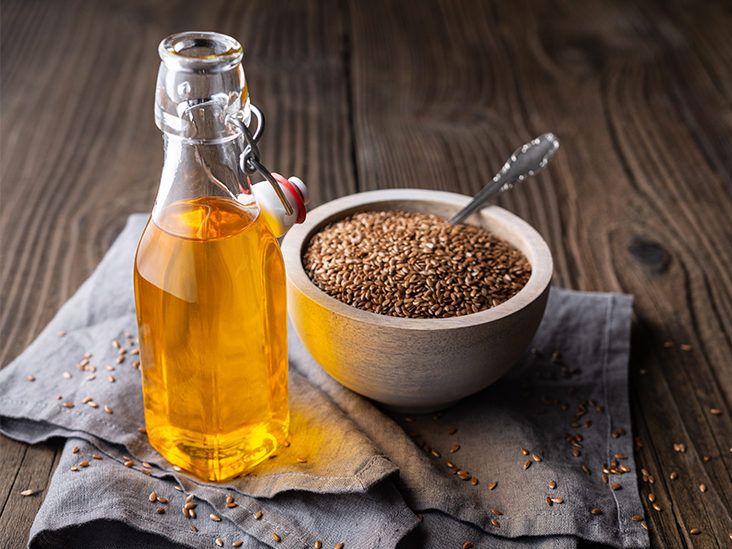In most African homes, cooking oil is more than just a kitchen item, it's a key player in the taste, aroma, and outcome of almost every meal. Whether you're frying plantains on a Sunday morning, preparing your favourite stew, or cooking smoky jollof rice for a family gathering, oil is involved. But here's the hidden truth: the type of oil you use could either nourish your body or contribute to chronic diseases like high blood pressure, diabetes, and heart issues. At Jannis Health, we care about what goes into your body, and that starts with what goes into your pot.
Have you ever wondered: Which cooking oil is best for your health? Is vegetable oil actually healthy? What oil should I use if I have high cholesterol? Which cooking oil is good for health, especially in African diets rich in fried and spicy foods? You're not alone. Many households are unknowingly choosing oils that do more harm than good, simply because they’re affordable or popular.
This guide from Jannis Health breaks it all down for you. We explore the healthiest oils for African cooking, compare the benefits of different types (like palm oil, groundnut oil, olive oil, coconut oil, and more), and explain how to make smarter choices based on your health needs. Whether you're cooking for yourself, your children, or your aging parents, this article will help you decide which cooking oil is good for health, and why your choice today can shape your well-being tomorrow.
The Hidden Dangers of Popular Cooking Oils
In many African kitchens, oils like sunflower, canola, and other vegetable oils are a go-to choice because they’re cheap and easy to find. But what if we told you that these oils, although convenient, may be silently harming your health? These oils are often highly processed and packed with omega-6 fatty acids. While your body needs a little omega-6, most of us are getting way too much, and not enough omega-3 to balance it. This imbalance can cause inflammation, which has been linked to joint pain, heart disease, and even diabetes.
Which Cooking Oil is Best for Your Health? Here's What Every African Kitchen Should Know
To protect your health and still enjoy your favourite meals, consider switching to these healthier, anti-inflammatory oils. When it comes to choosing the right oil, many people ask: Which cooking oil is best for your health? Or, Which cooking oil is good for health? The truth is, some oils can protect your heart, brain, and joints, while others can silently harm your body over time.
At Jannis Health, we care about your total wellness, especially in African homes where deep frying and traditional stews are common. Let’s look at 5 healthier cooking oils that support your body, and how to use them the right way:
#1. Olive Oil (Extra Virgin)
Best For: Light frying, cooking vegetables, drizzling over food and salads.
Why It's Healthy: Olive oil is full of good fats (called monounsaturated fats) and antioxidants. These help reduce inflammation, lower bad cholesterol, and protect your heart.
Jannis Tip: If you're switching from groundnut oil or margarine, start with olive oil. It’s one of the best oils for daily use in African homes.
#2. Avocado Oil
Best For: Deep frying, roasting, and sautéing.
Why It's Healthy: Avocado oil has a very high smoke point, which means it doesn’t break down easily when heated. It contains heart-friendly fats and vitamin E, which helps fight aging and supports skin health.
Jannis Tip: Cooking jollof rice or frying plantain? Use avocado oil. It’s a smart replacement for vegetable oil.
#3. Coconut Oil
Best For: Stir-frying, traditional cooking (like coconut rice), and baking.
Why It's Healthy: Coconut oil stays stable under heat and is rich in a fat called lauric acid, which helps fight bacteria. But because it’s high in saturated fat, use it in small amounts.
Jannis Tip: Love the flavor of coconut? Go for virgin coconut oil, but always pair it with a balanced diet or OmegaGenics from Jannis Health to reduce excess saturated fat.
#4. Red Palm Oil (Unrefined)
Best For: Traditional soups and stews like egusi, ogbono, and banga.
Why It's Healthy: Red palm oil is full of tocotrienols (a rare form of vitamin E) and beta-carotene, good for your eyes and immune system. But because it’s also high in saturated fats, it’s best not to overuse it.
Jannis Tip: Still love your native soups? Don’t worry. Just reduce quantity and balance your fats with Jannis OmegaGenics, a clean, strong omega-3 source to protect your heart and joints.
#5. Flaxseed Oil

Best For: Salad dressings, smoothies, and drizzling over already-cooked food.
Why It's Healthy: Flaxseed oil is one of the best plant-based sources of omega-3, the same healthy fats found in fish. Omega-3s reduce inflammation, support brain function, and keep your joints flexible.
Jannis Tip: Don’t cook with this oil. Instead, use it raw and add OmegaGenics capsules to your routine if you're not eating fatty fish like mackerel or sardines.
Why Omega-3 Still Matters, And How Jannis Health Can Help
Even if you switch to healthier oils, one major nutrient is still missing from many African diets: omega-3 fatty acids. These powerful fats help reduce inflammation, support heart health, protect the brain, and ease joint pain. Unfortunately, they’re mainly found in fatty fish like sardines and mackerel, foods that aren’t always part of daily meals in many homes.
That’s where Jannis Health steps in. Our OmegaGenics supplement offers a rich, high-quality source of omega-3 to help close the gap and support your body’s daily nutritional needs. With OmegaGenics, you don’t have to rely on occasional fish consumption, you can give your body what it truly needs every day.
Quick Oil Guide for African Kitchens
| Cooking Method | Recommended Oil |
| Frying (High Heat) | Avocado oil, unrefined coconut oil |
| Low-Heat Cooking | Extra virgin olive oil |
| Traditional Stews | Red palm oil (in moderation) + olive oil |
| Salads / Dressings | Extra virgin olive oil, flaxseed oil (unheated) |
Final Tips for Every African Kitchen
- Avoid reusing oils – Reheating oils can release harmful compounds that may damage your health.
- Watch the smoke point – Overheating oils causes them to break down and lose nutritional value.
- Rotate oils – Use different oils based on the type of cooking you’re doing.
- Balance your fats – Reduce omega-6-heavy oils and increase your omega-3 intake through food or supplements.
Your Kitchen, Your Health
The oils you use do more than cook your food, they either fuel inflammation or fight it. Every bottle of oil in your kitchen is an opportunity to support or sabotage your health.
Start smart. Choose better oils. Supplement wisely. And let Jannis Health guide your journey to better living.
Follow Jannis Health for more trusted wellness tips tailored to African homes.
Frequently Asked Questions About Which Cooking Oil Is Best for Your Health
Which cooking oil is best for your health?
The best cooking oil for your health depends on how you’re using it. Extra virgin olive oil is one of the healthiest options for low-heat cooking or salad dressings because it's full of good fats and antioxidants. If you're frying, avocado oil is a better choice because it can handle high heat. For extra support, pair your healthy oil choices with OmegaGenics supplements from Jannis Health to improve heart and brain health.
Which cooking oil is good for the heart?
Olive oil and avocado oil are both good for your heart. They contain monounsaturated fats that help lower bad cholesterol. Adding omega-3 supplements, like those from Jannis Health, also helps reduce inflammation and supports a healthy heart.
Is coconut oil healthy for cooking?
Coconut oil is safe for high-heat cooking and is often used in traditional African recipes. However, because it contains saturated fat, it should be used in moderation. It's best to mix it with other healthier oils like olive oil or avocado oil for balance.
Can I use red palm oil every day?
Red palm oil is rich in vitamin E and antioxidants, which are good for the body. But since it also has saturated fats, it’s best to use it in moderation. Try combining it with olive oil in your cooking for a healthier blend. And don’t forget to take your Jannis Health OmegaGenics supplement to balance your daily fat intake.
What oil is best for salads or smoothies?
Use extra virgin olive oil or flaxseed oil for salads and smoothies. These oils are not meant for cooking but are perfect for raw meals. Flaxseed oil is especially rich in plant-based omega-3s. If you need extra omega-3 support, consider the trusted OmegaGenics line from Jannis Health.
Why is omega-3 important if I already use healthy oils?
Even if you cook with healthy oils, most people still don’t get enough omega-3. Omega-3 helps fight inflammation, supports the heart and brain, and protects joints. That’s why taking a high-quality omega-3 supplement like OmegaGenics from Jannis Health is a smart move for your daily wellness.
What is the healthiest oil for frying in African kitchens?
For frying, avocado oil and unrefined coconut oil are best because they don’t break down under high heat. They are better choices than most vegetable oils. Pair them with a healthy lifestyle and OmegaGenics supplements from Jannis Health to get the most benefits.






Comments